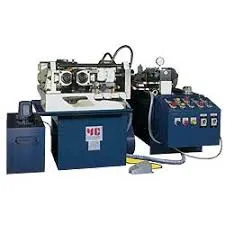
-
 Afrikaans
Afrikaans -
 Albanian
Albanian -
 Amharic
Amharic -
 Arabic
Arabic -
 Armenian
Armenian -
 Azerbaijani
Azerbaijani -
 Basque
Basque -
 Belarusian
Belarusian -
 Bengali
Bengali -
 Bosnian
Bosnian -
 Bulgarian
Bulgarian -
 Catalan
Catalan -
 Cebuano
Cebuano -
 Corsican
Corsican -
 Croatian
Croatian -
 Czech
Czech -
 Danish
Danish -
 Dutch
Dutch -
 English
English -
 Esperanto
Esperanto -
 Estonian
Estonian -
 Finnish
Finnish -
 French
French -
 Frisian
Frisian -
 Galician
Galician -
 Georgian
Georgian -
 German
German -
 Greek
Greek -
 Gujarati
Gujarati -
 Haitian Creole
Haitian Creole -
 hausa
hausa -
 hawaiian
hawaiian -
 Hebrew
Hebrew -
 Hindi
Hindi -
 Miao
Miao -
 Hungarian
Hungarian -
 Icelandic
Icelandic -
 igbo
igbo -
 Indonesian
Indonesian -
 irish
irish -
 Italian
Italian -
 Japanese
Japanese -
 Javanese
Javanese -
 Kannada
Kannada -
 kazakh
kazakh -
 Khmer
Khmer -
 Rwandese
Rwandese -
 Korean
Korean -
 Kurdish
Kurdish -
 Kyrgyz
Kyrgyz -
 Lao
Lao -
 Latin
Latin -
 Latvian
Latvian -
 Lithuanian
Lithuanian -
 Luxembourgish
Luxembourgish -
 Macedonian
Macedonian -
 Malgashi
Malgashi -
 Malay
Malay -
 Malayalam
Malayalam -
 Maltese
Maltese -
 Maori
Maori -
 Marathi
Marathi -
 Mongolian
Mongolian -
 Myanmar
Myanmar -
 Nepali
Nepali -
 Norwegian
Norwegian -
 Norwegian
Norwegian -
 Occitan
Occitan -
 Pashto
Pashto -
 Persian
Persian -
 Polish
Polish -
 Portuguese
Portuguese -
 Punjabi
Punjabi -
 Romanian
Romanian -
 Russian
Russian -
 Samoan
Samoan -
 Scottish Gaelic
Scottish Gaelic -
 Serbian
Serbian -
 Sesotho
Sesotho -
 Shona
Shona -
 Sindhi
Sindhi -
 Sinhala
Sinhala -
 Slovak
Slovak -
 Slovenian
Slovenian -
 Somali
Somali -
 Spanish
Spanish -
 Sundanese
Sundanese -
 Swahili
Swahili -
 Swedish
Swedish -
 Tagalog
Tagalog -
 Tajik
Tajik -
 Tamil
Tamil -
 Tatar
Tatar -
 Telugu
Telugu -
 Thai
Thai -
 Turkish
Turkish -
 Turkmen
Turkmen -
 Ukrainian
Ukrainian -
 Urdu
Urdu -
 Uighur
Uighur -
 Uzbek
Uzbek -
 Vietnamese
Vietnamese -
 Welsh
Welsh -
 Bantu
Bantu -
 Yiddish
Yiddish -
 Yoruba
Yoruba -
 Zulu
Zulu
Hydraulic Thread Rolling Machine Cost and Supplier Information Guide
Exploring Prices and Suppliers of Hydraulic Thread Rolling Machines
In the modern manufacturing landscape, precision engineering plays a crucial role in producing high-quality products. Among the various processes available, thread rolling has emerged as a highly efficient and preferred method for creating intricate screw threads on various materials. A hydraulic thread rolling machine is essential for this process, providing the force needed to form threads accurately and consistently. However, understanding the pricing and sourcing of these machines is vital for manufacturers seeking to optimize their operations.
What Are Hydraulic Thread Rolling Machines?
Hydraulic thread rolling machines are specialized equipment used to shape and form threads on cylindrical materials. The process involves feeding a blank workpiece between two dies, which are moved together using hydraulic pressure. This action compresses the material, causing it to flow into the shape of the thread. Not only does this method produce precise threads, but it also enhances the material strength and surface finish compared to traditional cutting methods.
Factors Influencing Prices
The price of hydraulic thread rolling machines can vary significantly based on several factors
1. Machine Specifications The size, capacity, and features of the machine heavily influence its price. Larger machines capable of handling bigger workpieces or those with advanced features like automated controls and multiple die options tend to be more expensive.
2. Brand and Manufacturer Established brands with a reputation for quality and reliability often charge a premium for their machines. Conversely, lesser-known manufacturers or emerging brands may offer lower prices to attract buyers.
3. Technology and Innovation The integration of new technology, such as digital controls or energy-efficient systems, can raise costs. However, these features might lead to long-term savings in operational costs and maintenance.
4. Market Demand Fluctuating demands in the manufacturing industry can also affect prices. During periods of high demand, prices may rise, while during economic downturns, manufacturers may lower prices to stay competitive.
hydraulic thread rolling machine price suppliers

5. Geographical Factors Prices can vary by region due to shipping costs, tariffs, and local supply chain factors. International buyers should consider these additional costs when evaluating machine prices.
Sourcing Suppliers
Identifying reputable suppliers is essential for businesses looking to invest in hydraulic thread rolling machines. Here are some steps to consider
1. Online Research Websites like Alibaba, Made-in-China, and ThomasNet provide listings of suppliers and manufacturers. These platforms often feature user reviews, allowing prospective buyers to assess the reliability of suppliers.
2. Trade Shows and Exhibitions Attending industrial trade shows can be an excellent opportunity to meet suppliers, see machines in action, and negotiate prices directly with manufacturers.
3. Networking Engaging with industry peers and professionals through online forums or local manufacturing associations can yield valuable recommendations for trusted suppliers.
4. Requesting Quotes Once potential suppliers are identified, obtaining quotes from multiple sources helps compare prices and negotiate better deals. Be sure to inquire about warranties, service agreements, and parts availability.
5. Evaluating After-Sales Support A reliable supplier should offer robust after-sales support, including maintenance, training, and parts availability, ensuring that operations run smoothly post-purchase.
Conclusion
The acquisition of a hydraulic thread rolling machine is a significant investment for manufacturers seeking to enhance their threading capabilities. By understanding the factors that influence pricing and carefully evaluating suppliers, businesses can make informed decisions that align with their production needs and budgets. As manufacturing continues to evolve, investing in quality machinery will remain a key factor in maintaining competitiveness and efficiency in the industry.
